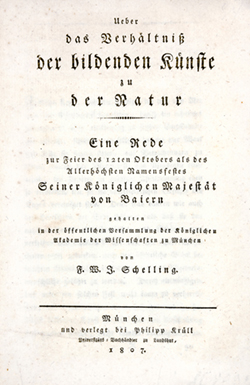Natura, arte, bellezza. Il tema della grazia nella "Akademie-Rede" di Schelling
DOI:
https://doi.org/10.13135/2038-6788/9958Parole chiave:
Anima, Arte, Bellezza, Grazia morale, Grazia sensibile, SchellingAbstract
Focusing on Schelling’s 1807 lecture Über das Verhältnis der bildenden Künste zu der Natur (the so-called Akademie-Rede, given by the German philosopher at the Bavarian Academy of Fine Arts), this essay explores Schelling’s conception of “grace” in the context of the wider relationship between art, nature, and beauty. Not only is grace a “feature” of some particular forms of art, as previously stated in the Philosophie der Kunst (1803), but it is also the most perfect achievement of the process of artistic creation. In the wake of his philosophy of nature (Naturphilosophie), Schelling conceives of art as an imitation of the infinite and creative power of nature; therefore, grace can be seen as the highest conjunction of work of art and work of nature, both from a sensible point of view – as “sensible grace,” “soul,” and “form” of nature – and from a moral perspective – as “moral grace,” unity of sensible grace and moral good. This expresses also divine love and beauty.


